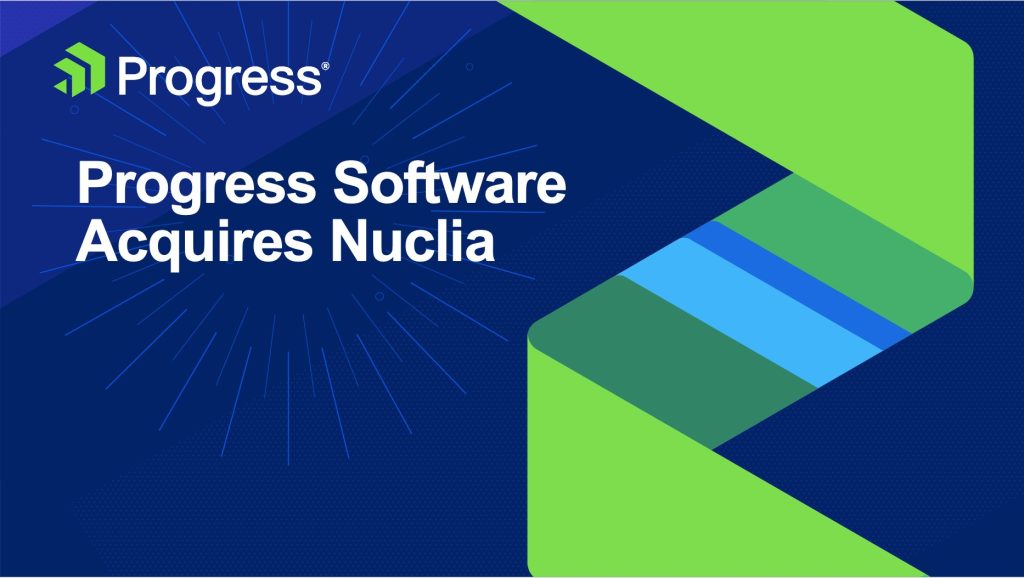In an ambitious move to enhance their digital solutions, Progress Software Corp. has recently announced its acquisition of Nuclia, a leading innovator specializing in Retrieval-Augmented Generation (RAG) AI technologies. This strategic acquisition is set to streamline how organizations can harness their proprietary business data to generate accurate and trustworthy AI-driven responses.
Understanding Retrieval-Augmented Generation (RAG)
Retrieval-Augmented Generation (RAG) is a cutting-edge AI technology that combines traditional data retrieval methods with advanced generative algorithms. By leveraging large language models (LLMs) alongside proprietary data, RAG offers a more nuanced and contextually relevant approach to information retrieval. This methodology allows organizations to provide accurate answers based on internal data, thus enhancing customer engagement and decision-making processes.
Nuclia’s RAG-as-a-service model is designed to democratize access to these sophisticated AI capabilities. The platform allows organizations, regardless of size, to implement advanced AI solutions without substantial upfront investment. This is particularly advantageous for small and medium enterprises (SMEs) that may lack the resources to develop such technologies in-house.
Expert Insights into the Acquisition
The acquisition has been met with optimism from both Progress and Nuclia leadership. Yogesh Gupta, CEO of Progress Software, emphasizes the accessibility of Nuclia’s technology, stating, “Nuclia’s easy-to-use, self-service SaaS product democratizes the use of trustworthy and verifiable GenAI.” This assertion highlights the importance of making advanced technology available to a broader range of businesses, enhancing their ability to compete in a data-driven marketplace.
Eudald Camprubí, CEO and co-founder of Nuclia, also shared his excitement over the partnership, asserting, “The rapid evolution of AI has transformed how organizations interact with information, creating new possibilities for more accurate, dynamic, and context-aware systems.” He describes agentic RAG as a pioneering approach that empowers businesses to synthesize insights from their proprietary data more efficiently.
Market Impact and Future Prospects
By integrating Nuclia’s technology into the Progress Data Platform, the company aims to expand its market reach significantly. The combined capabilities of the two firms are likely to attract a diverse range of organizations looking to implement AI solutions tailored to their unique business needs.
The acquisition also opens doors for enhanced customer experiences. With the ability to generate reliable answers using internal data, businesses can improve customer support, facilitate complex queries, and provide enriched content for end-users. This has the potential to create a more responsive and user-friendly interaction model in various sectors, including finance, healthcare, and e-commerce.
Community Response and Technological Trends
The acquisition reflects a broader trend in the tech industry, where companies prioritize the integration of AI capabilities into their existing platforms. According to a recent report by Gartner, approximately 75% of organizations are currently utilizing some form of AI technology, and the demand for AI-driven data solutions continues to surge.
As businesses adapt to the evolving technological landscape, the ability to provide accurate, timely, and context-based responses becomes increasingly critical. The integration of Nuclia into Progress Software’s offerings positions the latter to capitalize on this growing market trend and meet the demands of customers seeking effective AI solutions.
Overall, Progress Software’s acquisition of Nuclia represents a significant step in the evolution of AI-driven solutions in business. By enabling organizations to utilize their proprietary data while accessing sophisticated RAG technology, this partnership is poised to redefine how businesses interact with information in an increasingly competitive marketplace.

